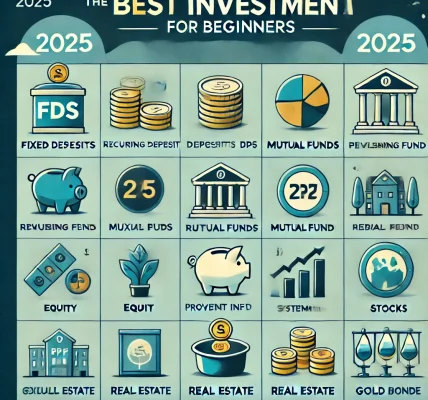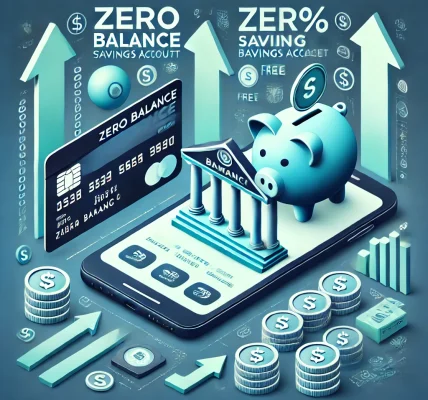Introduction
Purchasing a home is a major financial decision, and securing the right home loan can significantly impact your long-term financial stability. Whether you’re a first-time buyer or looking to refinance your existing mortgage, choosing the best home loan option is crucial.
This comprehensive guide will explore top home loan options, key features, eligibility criteria, and tips to help you make an informed decision.
Types of Home Loans for First-Time Buyers
1. Conventional Loans
Conventional home loans are the most common type of mortgage, typically offered by banks and financial institutions. They are ideal for borrowers with good credit scores and stable income.
Features: ✔ Requires a down payment of 3%–20% ✔ Competitive interest rates ✔ No private mortgage insurance (PMI) required for 20% down payment ✔ Available as fixed-rate or adjustable-rate mortgages
Best for: Buyers with good credit (minimum 620) and the ability to make a solid down payment.
2. FHA Loans (Federal Housing Administration Loans)
FHA loans are government-backed loans designed for first-time homebuyers with low-to-moderate incomes and lower credit scores.
Features: ✔ Low down payment (as low as 3.5%) ✔ Requires a minimum credit score of 580 ✔ More lenient debt-to-income (DTI) ratio requirements ✔ Mortgage insurance premium (MIP) required
Best for: First-time buyers with low credit scores and limited savings for a down payment.
3. VA Loans (Veterans Affairs Loans)
VA loans are exclusive to military service members, veterans, and their families and offer some of the best home loan benefits.
Features: ✔ No down payment required ✔ No private mortgage insurance (PMI) ✔ Lower interest rates compared to conventional loans ✔ Backed by the U.S. Department of Veterans Affairs
Best for: Eligible veterans and active-duty military personnel.
4. USDA Loans (United States Department of Agriculture Loans)
USDA loans are zero-down-payment loans for buyers in eligible rural and suburban areas.
Features: ✔ No down payment required ✔ Low interest rates ✔ Income limits apply ✔ Must purchase a home in a designated USDA area
Best for: Buyers looking for affordable housing in rural or suburban locations.
5. Jumbo Loans
Jumbo loans are designed for buyers purchasing high-value homes that exceed conventional loan limits.
Features: ✔ Loan amounts exceed $726,200 (varies by location) ✔ Requires a high credit score (typically 700+) ✔ Higher interest rates and stricter qualification criteria
Best for: High-income buyers purchasing luxury properties.
Best Home Loan Options for Refinancing
If you already own a home, refinancing your loan can help lower your interest rate, reduce your monthly payments, or access home equity.
1. Rate-and-Term Refinance
Refinancing to secure a lower interest rate or change the loan term (e.g., switching from a 30-year to a 15-year mortgage).
✔ Lowers monthly payments ✔ Saves money on interest over the life of the loan ✔ Requires good credit and home equity
Best for: Homeowners seeking lower rates or a shorter loan term.
2. Cash-Out Refinance
A cash-out refinance allows homeowners to borrow more than they owe on their mortgage and receive the extra cash.
✔ Tap into home equity for renovations, debt consolidation, or investments ✔ Higher loan amount than original mortgage ✔ Requires home equity and good credit
Best for: Homeowners needing cash for major expenses.
3. FHA Streamline Refinance
A simplified refinancing process for existing FHA loan holders.
✔ No appraisal or income verification required ✔ Lower interest rates with minimal paperwork ✔ Requires on-time payments on existing FHA loan
Best for: Homeowners with FHA loans looking for an easy refinancing process.
4. VA Interest Rate Reduction Refinance Loan (IRRRL)
Exclusive to VA loan holders, this refinance option allows veterans to reduce their interest rates.
✔ No out-of-pocket costs (fees rolled into loan) ✔ Minimal documentation required ✔ Available only for existing VA loan borrowers
Best for: Veterans with VA loans seeking lower rates.
How to Choose the Best Home Loan
When selecting a home loan, consider the following factors:
🔹 Credit Score: Higher credit scores qualify for better rates. 🔹 Down Payment: Some loans require as little as 0% down, while others may need 20%. 🔹 Loan Term: Choose between 15-year, 20-year, or 30-year loans based on your financial goals. 🔹 Interest Rate Type: Decide between fixed-rate (stable payments) or adjustable-rate (lower initial rates but variable payments). 🔹 Fees & Closing Costs: Consider origination fees, processing fees, and insurance requirements.
Tips for First-Time Home Buyers
✅ Check Your Credit Score: Improve your score before applying for a loan to get better rates. ✅ Compare Lenders: Get multiple loan offers to find the best interest rate and terms. ✅ Understand Your Budget: Use a mortgage calculator to estimate your monthly payments. ✅ Save for a Down Payment: Even loans with low down payment options may require upfront costs. ✅ Get Pre-Approved: A pre-approval letter strengthens your offer when buying a home.
Conclusion
Choosing the right home loan as a first-time buyer or for refinancing can make a significant difference in your financial future. Understanding the different mortgage options, comparing lenders, and preparing financially will help you secure the best loan that fits your needs.
By making an informed decision, you can enjoy the benefits of homeownership while keeping your financial future secure.
FAQs
1. What is the best home loan for first-time buyers?
FHA loans and conventional loans with low down payment options are ideal for first-time buyers.
2. How much down payment do I need for a home loan?
It depends on the loan type. FHA loans require 3.5% down, while VA and USDA loans require 0% down.
3. Can I refinance my home loan with bad credit?
Yes, but options may be limited. FHA Streamline and VA IRRRL refinancing are more lenient.
4. How do I qualify for a low-interest home loan?
Maintain a high credit score, stable income, and low debt-to-income ratio to qualify for the best rates.
5. When is the best time to refinance a mortgage?
Refinancing is best when interest rates drop, or when you need to lower monthly payments or tap into home equity.
By understanding your options and preparing accordingly, you can secure the best home loan that fits your financial goals.




